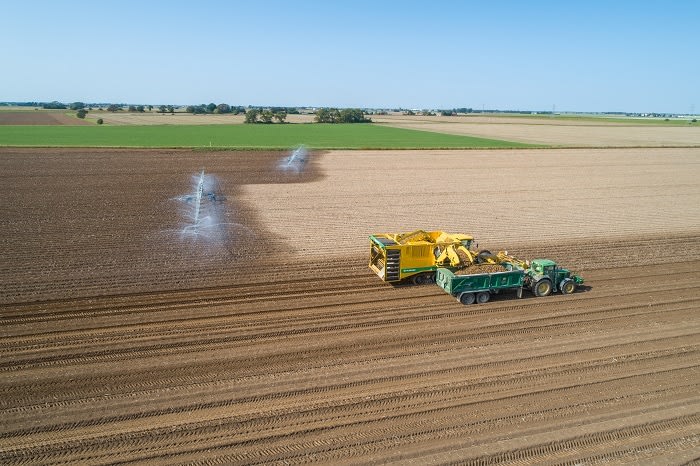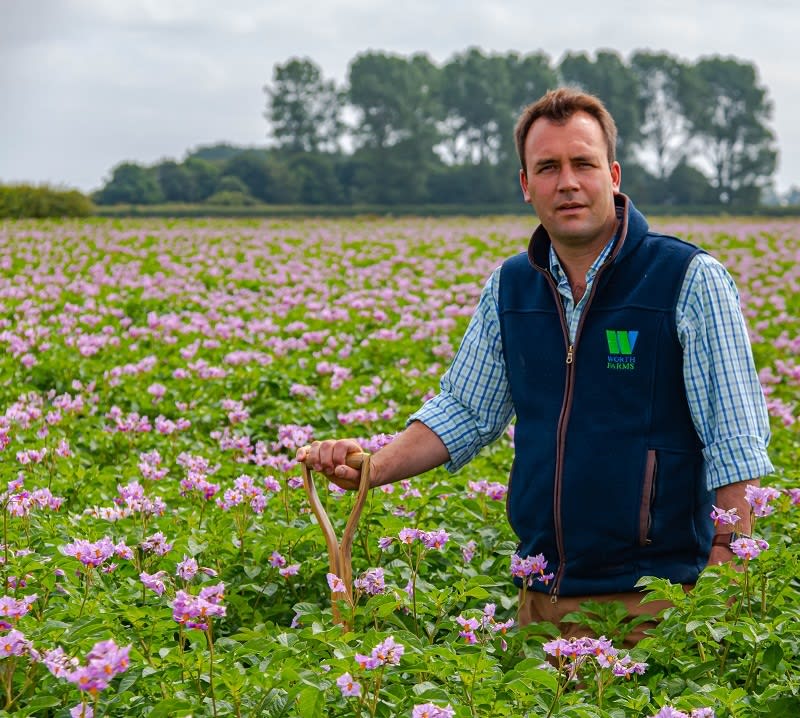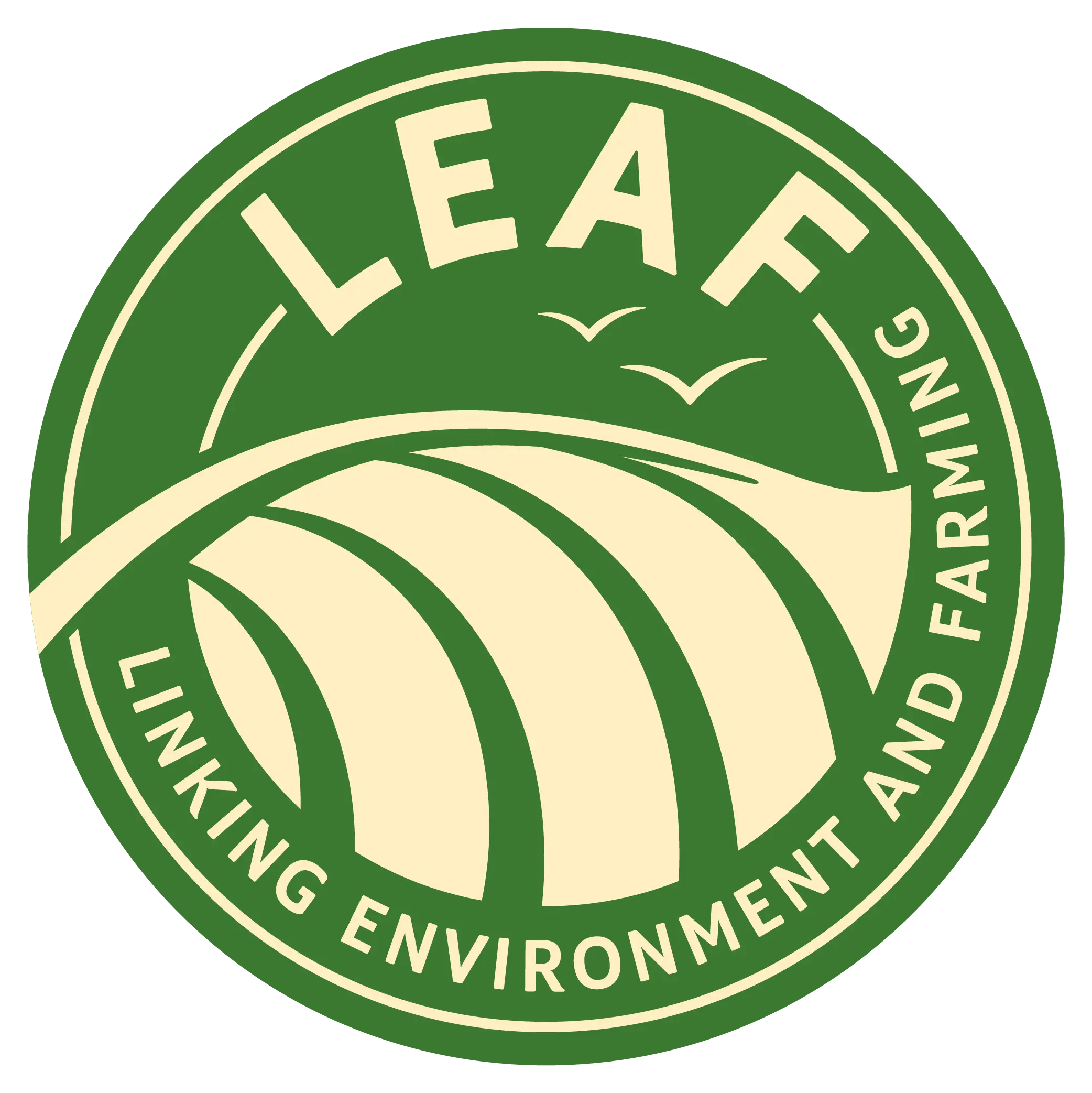Celebrating World Soil Day: Building a more resilient soil in the Fens
Here we take a closer look at Worth Farms- the farm’s soil history, historical farming practices and how they are continuously improving soil health and fertility.
About the farm
Worth Farms have been a LEAF Demonstration Farm since 1997 and continue to drive forward more sustainable farming practices through Integrated Farm Management (IFM).
Based on Holbeach marsh in South Lincolnshire, Worth Farms is approximately 3000 ha and is situated on Grade 1 alluvial silt, so the land is extremely productive. Produce is grown within an eight-year rotation including wheat as a major break crop, potatoes, sugar beet, vining peas, maize and to enhance the rotation; salads and other vegetables are grown on land rented out to specialist producers.

Historical soil management practices
Reflecting on the farm’s history, one-third of the farm was sown with winter crops, with the other two-thirds spring crops. Ploughing was very much the traditional cultivation method used and worked effectively for potato production.
Around ten years ago, management decisions were made to review the current cultivation practices and to identify any areas for improvement. Reflecting on this, the farm invested in a Sumo trio cultivator which meant that two operations could be done in one pass; subsoiling, discing and levelling followed by the plough.
Today, through continuous improvement and adapting to new practices, the farm only ploughs around 150ha which has resulted in significant cost savings on working hours, machinery, fuel and soil disturbance. Furthermore, this change of practice has helped to keep soil organic matter in the surface, reducing the likelihood of capping.
The challenges
However, farming on alluvial based soils also comes with its challenges. Despite being highly productive soils, the land is particularly renowned for having relatively low soil organic matter levels (around 2.5 – 3%). Worth Farms try to increase this level wherever possible, by applying home-produced digestate in both liquid and cake form and growing a large hectarage of cover crops to support soil structure throughout the winter.
Making these changes, in conjunction with reduced soil disturbance has highlighted substantial earthworm numbers and nutrients in the soil. Thus, making the soils more workable and resilient for the future.
Soil health improvements for the future
Through continuous improvement and embracing changes in Integrated Farm Management over the years, the farm now has a better understanding of how to build a more resilient soil for future food production.
“It is our mission to provide every crop with the best possible field conditions to optimise yield and quality potential.” Simon Day, Farm Manager, Worth Farms.

READ MORE:
The full article is available in our Integrated Farm Management Quarterly magazine, exclusive to LEAF members. Click here to find out more.
